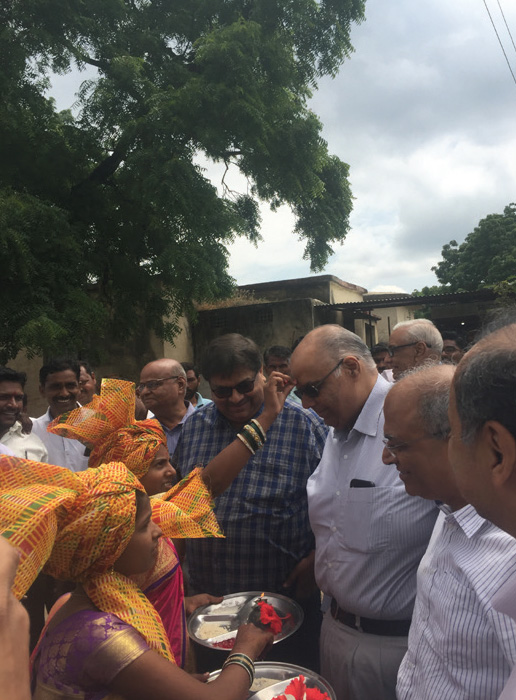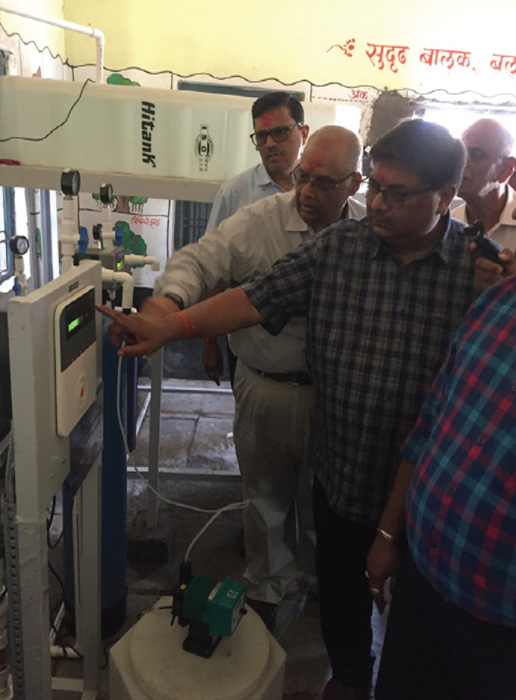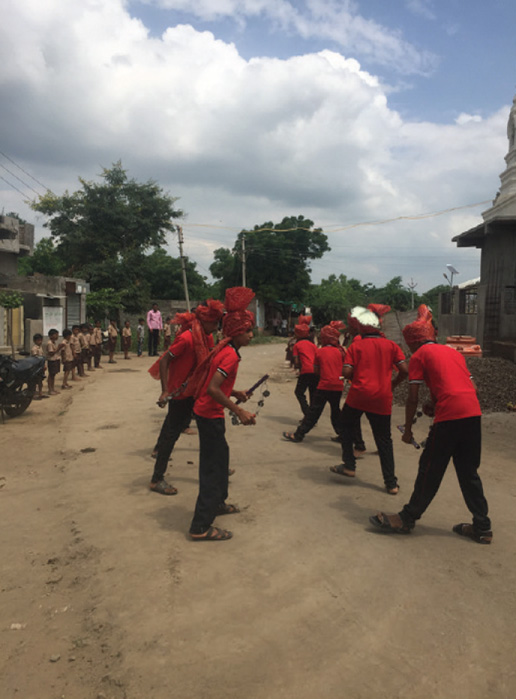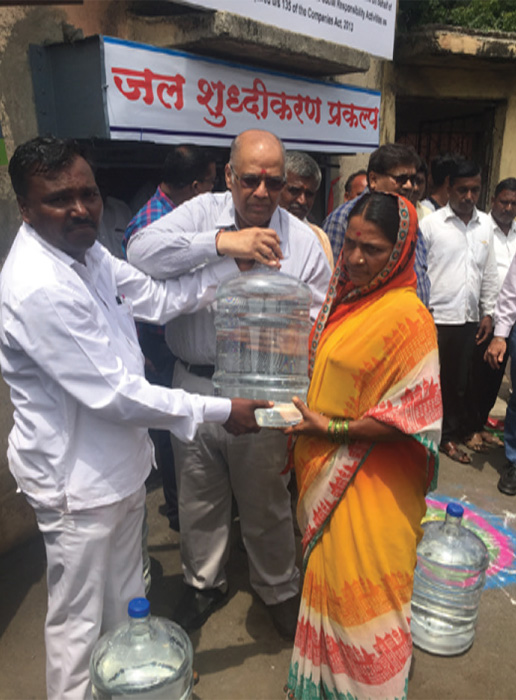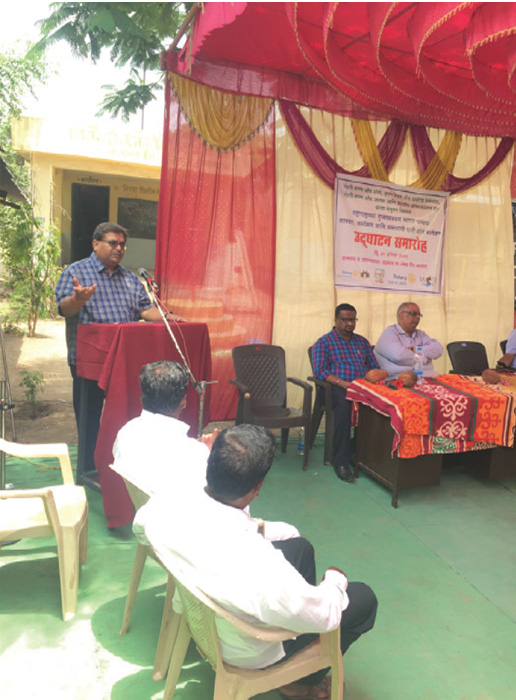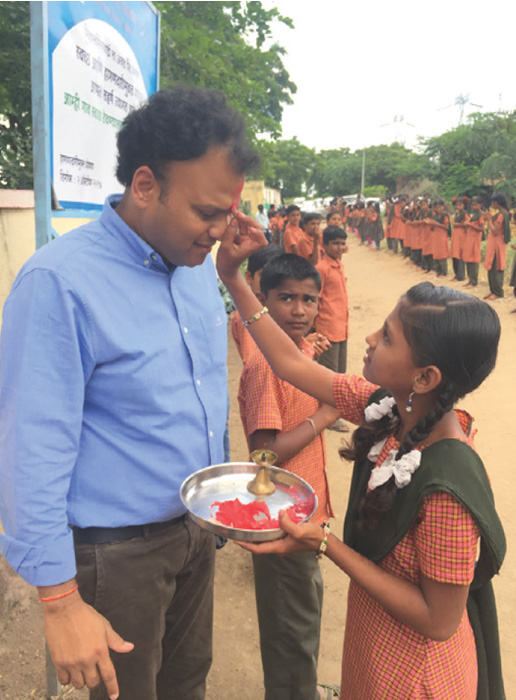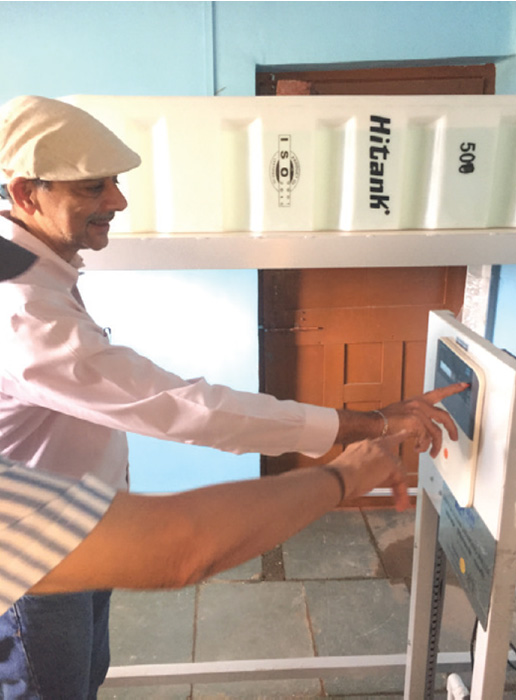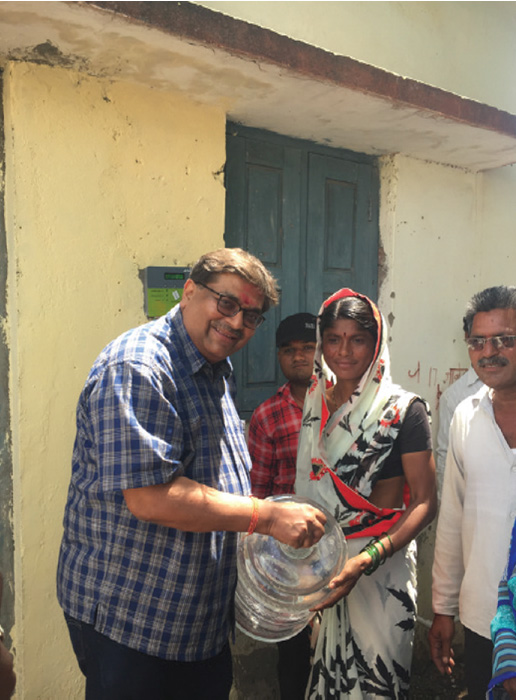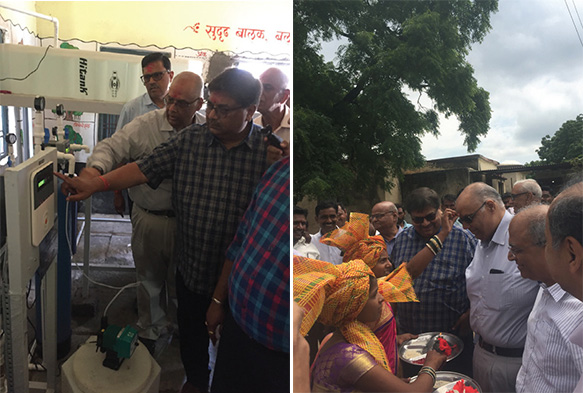
Jal is Jeevan
THE Jal Jeevan project is very close to all our hearts at the Water Resources Committee of the Rotary Club of Bombay.
On August 29th, 2019, IPP Rtn. Vijay Jatia, PP Rtn. Sandip Agarwalla, Rtn. Siddharth Bhimrajka and Rtn. Anand Parikh visited Jalna to inaugurate three Jal Jeevan Safe Drinking Water facilities in villages in Jalna District.
Jal Jeevan Safe Drinking Water facilities at Khedgaon village in Jalna district
The population of the village is 1000 people. To express their joy and gratitude, the students of the village welcomed Rotarian members with a lezim show. RCB provided the village a 500 litre per hour RO plant.
Jal Jeevan Safe Drinking Water facilities at village Nihalsinghwadi in Jalna district.
The village has a population of 1300 people. The students of the village welcomed RCB with applause and were very thankful for the 500 LPH UV plant set up by us.
Jal Jeevan Safe Drinking Water facilities at village Pimperkhed in Jalna district. The village has a population of 1500 people. The Club provided them a 500 LPH UV plant. The highlight of the day was a sumptuous traditional lunch arranged by the village for the guests and RCB members.
Under the Jal Jeevan project, Rotary Club of Bombay’s Water Resources Committee has installed several RO plants, UV plants and distributed over a thousand gravity-based filters in villages in the Vidarbha and the Marathwada regions of Maharashtra.
The Jal Jeevan initiative aims to provide safe drinking water to villages which will improve their health and economic conditions.
When completed, the project is expected to benefit over 12,000 adults and children by providing them with a constant supply of safe and clean drinking water across 42 villages.
The project envisaged a need assessment, testing water conditions at each of the villages, evaluation of the right equipment that would sustain in each location and, finally making sure that the plants are installed in appropriate sheds and training is provided to the villagers to operate and maintain the plants on an ongoing basis.
In villages where the RO plant could not be installed due to infrastructure or non-availability of consistent source of electricity or raw water, gravity-based filters have been given to every household. A comprehensive maintenance contract for a period of three years has also been provided for each of the plants.

